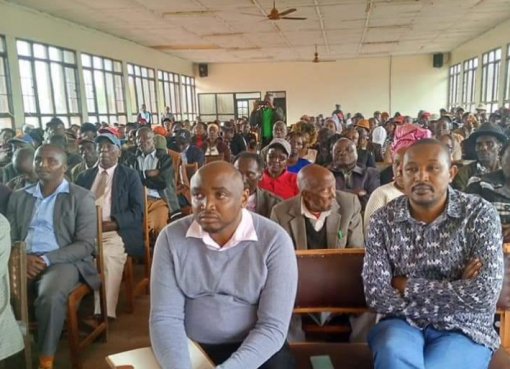Technical and Vocational Education and Training institutions (TVETs) principals have commenced training on Recognition of Prior Learning policy (RPL) in preparation for the roll out of the policy.
The policy focuses on certification based on skills and competency for the informal sector.
The country has been preparing to put in place the necessary systems, structures and legal frameworks to implement Recognition of Prior Learning (RPL) for the past few years.
Speaking to media on Monday, Kenya National Qualifications Authority (KNQA) Director Stanley Maindi said that the rollout phase has officially started, and thus the need for capacity building of critical players.
TVETs Principals are therefore going through a one-day workshop on how to institutionalize the policy in their respective institutions.
“We have over 60 participants comprising principals and RPL coordinators in the TVET institutions. The purpose is to commence the roll out of RPL in the entire sector. This is one of the series of capacity building workshops we have organized across the country to sensitize, create awareness and identify who are the beneficiaries, explain the process and the state of preparedness by our country to roll out the policy,” said Maindi.
Chairman Kenya Association of Technical Training Institutions (KATTI) Okumu Odhiambo said that TVETs will form the basis and connection of many artisans especially in the Jua Kali sector to gain the recognition of their prior learning skills and experience.
Odhiambo noted that there are almost 260 operational TVETs institutions and it was thus easy for the artisans to approach one facility and have their qualification registered and recognized in the country.
“As public institution we are ready to implement this important policy by the government so that our country can have a good pool of young people who will help the development of this nation. Many youth will find easy access for recognition of their skills that they already possess even though they may not be formally qualified through the normal learning system in the country,” he added.
He said the policy also presents a good opportunity for the industry where some artisans have been absorbed as workers. “However, they have failed to earn promotions because no one can recognize the kind of qualifications that they have apart from the fact that they are very proficient and skilled in their work areas,” he added.
“This will present an opportunity for those in the industry to submit their requests so that the institutions can access them and award them commensurate qualifications based on the skills they display in their areas of work,” added Odhiambo.
All interested artisans in all sectors have been urged to participate and apply so that there are large numbers of people with qualifications that are restorable and recognized by many employers.
Most of the artisans in the informal sector have acquired and perfected various skills through apprenticeship and learning on the job without pursuing any formal training in a learning institution. This means they do not have certificates which can enable them to seek employment in the formal sector or even register companies.
By Chari Suche





